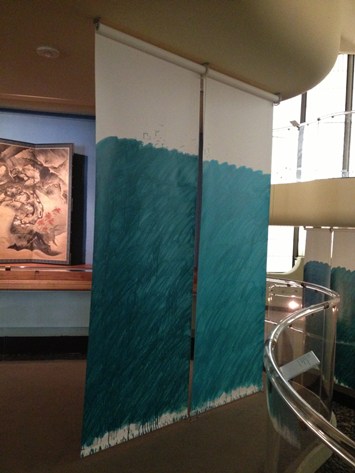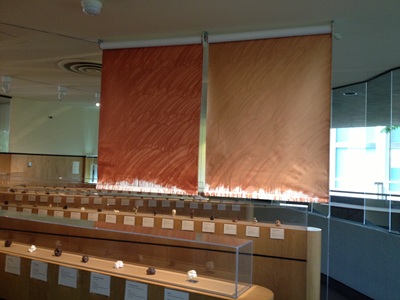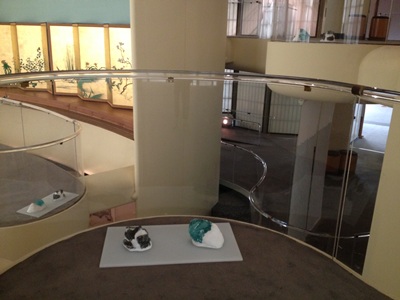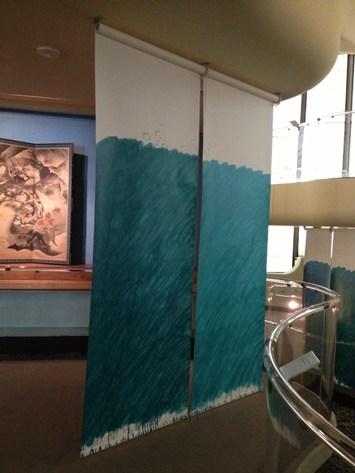The overlapping of disciplines and artistic expressions is at the core of Stephen Prina’s practice. Visitors to the exhibition Stephen Prina: As He Remembered It in the 3rd floor of BCAM have observed Prina’s engagement with modern architecture, specifically two homes built by R. M. Schindler. As the exhibition continues in the Pavilion for Japanese Art, visitors see Prina’s long-term interest in a different architect, Bruce Goff.
 Stephen Prina, As He Remembered It, installation view, Los Angeles County Museum of Art, 2013. © Stephen Prina
Stephen Prina, As He Remembered It, installation view, Los Angeles County Museum of Art, 2013. © Stephen Prina
Known for his unconventional and eclectic buildings, self-taught American architect Bruce Goff designed the Pavilion for Japanese Art before he passed away in 1982. When the building opened on the LACMA campus in 1988, critics responded in a variety of ways. “There is simply nothing like it anywhere,” wrote one critic, while another one explained that the east gallery “is a marvelous room,” noting that it is “at once energetic and serene.”
 Stephen Prina, As He Remembered It, installation view, Los Angeles County Museum of Art, 2013. © Stephen Prina
Stephen Prina, As He Remembered It, installation view, Los Angeles County Museum of Art, 2013. © Stephen Prina
Prina’s work frequently develops in a series of multi-year projects that he rearranges and re-presents in different contexts; his contemplation of Goff’s work is similarly multi-layered and has taken various forms. In the film The Way He Always Wanted It II (2008), Prina uses Goff’s 1947 Ford House in Aurora, Illinois, as a ready-made set. For the exhibition currently on view in the Pavilion, Prina created new work, including a series of paintings that resonate with the colors within the Pavilion (both in the artwork and the building) and sculptures made of coal and slag glass that sit on acrylic panels, referencing materials used to build both the Ford House and the Pavilion for Japanese Art.
This Saturday, June 22, LACMA premiers Prina’s new flute sextet The Way He Always Wanted It XI, in the Pavilion. Before devoting himself fully to architecture, Goff was a composer and painter, as well. Prina focuses on one melody programmed by Goff for player piano as the generating material for this composition.
 Stephen Prina, As He Remembered It, installation view, Los Angeles County Museum of Art, 2013. © Stephen Prina
Stephen Prina, As He Remembered It, installation view, Los Angeles County Museum of Art, 2013. © Stephen Prina
The Way He Always Wanted It XI premiers on Saturday at 2pm in the Pavilion for Japanese Art. The performance will be followed by a tour of the exhibition with Stephen Prina. It is free, and no reservations are required.
Elizabeth Gerber, Education and Public Programs



